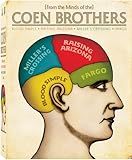Inside Llewyn Davis is the epitome of a Coen Bros movie: Complicated, amusing, intense, and musical

‘Inside Llewyn Davis’ is a high quality movie, but its slow pace and difficult characters may make it a hard movie to sit through.
Change is said to be quite inevitable and affects basically everything. Even the talented and beautiful must suffer the vagaries of fate and the changing whims of public taste. A master actor of the silent movie era may become obsolete once sound arrives. The greatest hair metal band in the world seemed irrelevant when Nirvana arrived. But the choice of any artist in times of change are either to adapt or struggle in place. But artists have an even greater enemy than the new fad or different popular notions: themselves and their own bloated sense of self-worth. The problem with talent is that if you have it but aren’t successful at applying it, your life seems somehow wasteful. And if you strive for success but fall short time and again, things may seem increasingly pointless. Finding refuge in sex and drugs is commonplace, if not so helpful. And yet, at the same time, it is easy for artists to abandon those who may care about them in pursuit of that barely definable goal of “making it.” Some people never even get that far. And some people just decide to “sell out,” which can mean quite a few things.
Inside Llewyn Davis is the latest movie from the Coen Brothers, covering a week in the life of a struggling folk artist (Llewyn of the film’s title) in 1961. Llewyn, played by Oscar Isaac, has little money and a helluva lot of pride, but owes money everywhere and has no home of his own. Instead, he must find places to sleep, from friends or his sister, a single mother, all of with whom he has complicated histories. And things are only getting more complicated. His best friend Jim (Justin Timberlake) is looking for some help on a new, overly treacly song about the space race, and Jim’s wife and singing partner Jean (Carey Mulligan) has some serious issues with Llewyn. After a series of misadventures and setbacks, he decides to accept a ride to Chicago (along with an overweight jazz musician played by John Goodman) because Llewyn might just have a chance at a contract if he can play for music producer Bud Grossman (the epic F. Murray Abraham). But as this is a Coen Brothers movie, anything is possible, and the ending may be expected or wholly the opposite. And because it’s only a week, there’s a great deal of room for interpretation.
This film is a mix of a drama and a musical of sorts, filled with several full length performances of excellently written folk songs. Oscar Isaac has excellent stage presence and a lovely singing voice, but at times the performances can seem a bit repetitive and lack connection to the plot. There are some specific songs that ache with emotional resonance, but getting there might be too much effort for some. As might be expected from this sort of movie, it’s a bit intentionally fragmented and meandering, with a kind of dark humor and casual elegance. There are all sorts of little great performances here, which I won’t spoil, although the weakest is probably Justin Timberlake, but thankfully he’s mostly relegated to singing (which he’s quite good at). But Carey Mulligan is an emotional powerhouse, the furious little fire to Oscar Isaac’s laconic melancholia, and John Goodman is obviously great as a variant of himself. But F. Murray Abraham was my favorite performance of the movie, seemingly effortlessly making a magnificently subtle and affecting show of acting, although he’s pretty great in most things (he’s been one of the best parts of Homeland lately). This isn’t a movie for lightness and simple situations, but complications and escalating problems. For those who can’t handle something that might depress you, I’d avoid this one.
As for me, I enjoyed the film, difficult to empathize with characters and all. The movie doesn’t really end up saying anything definitively about art, but suggests (to me anyway) that if you have passion and talent, try not to be a total jerk to people. That’s a pretty okay lesson, if you think about it.
 CliqueClack
CliqueClack


